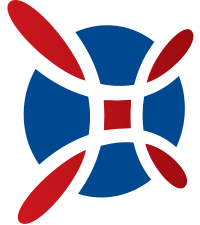As recruiters we are giving advice to candidates all the time on how to interview, how to prepare, how to act and how to write the resume. The list goes on. Being on the Rec to Rec side of the market and dealing with recruiters all day, we see that the advice you give as the recruiter is not always used when you’re looking for your next role. It will help you get your next position if there is some preparation with the resume and a matching Linked In. Here are some basic tips when thinking of putting together a resume for yourself. It may sound silly giving this info to recruiters, but we do see some very poorly prepared resumes that we basically have to rewrite.
Hope these tips help. Main thing is take the time to write yourself a good resume and you will get interviews.
The Resume
So you have decided to change your job. Now comes one of the fun bit; writing the resume, which is something we all dread (It is one of the ironies of the recruitment business that most recruiters don’t have an updated resume). How do you sell yourself? Most people do not know what they were doing last week, let alone five years ago. And before you ask, NO, they will not make an offer before they get your resume. We can start the process with your Linkedin profile and a good introduction send out, but you will need to show some commitment to the process by making a decent resume
Here we go with a few well-trodden tips to point you in the right direction.
Get your Linkedin sorted.
Nowadays with social media, one of the first things the client will do is check out our profile on Linkedin. We have to consistently remind people to take down the photo of them lying on the beach or eating somewhere with ketchup on their chin. You are applying for a job as a recruiter, not a swimwear model or food critic.
Remember this is the first thing the client sees about you, so let`s have an appropriate photo up.
Keep all the dates you started and left the companies the same as your resume. Trivial details like this matter to the client so it is important to have these match on both your resume and online profile.
How do I (the resume) look?
Like us humans, resumes come in all sorts of shapes and font sizes. Many come with boxes and italics, underlines, bolding and the odd emoji. This may very well be showing your artistic side and take you hours. However, most recruitment companies want you to keep it simple, so don`t do go overboard with the style.
Use one font and size, preferably Arial 10.5 or 11, and only use bolding for the major headings such as the companies you worked for and job title. Keep the layout consistent across the whole resume. For the information you want to convey, use simple bullet points.
Can I get a template for this?
Yes. Contact us and we can get you an example of a good resume and an example of a bad one so you can work out what you need to do.
There is generally no right or wrong, but make it look balanced on the page .For the top we go with Name, Languages, Skills, and Education
Next up is the Work Experience Section
Now you need to dig deep and remember the finer points of what you have been doing. This needs to be written with the most recent role first. Put the Company to the left with the dates you were there on the same line to the right of the page. On the Next line put, your Job title.
Now we can get into the duties you carried out while there. List these, and try and put some feeling in to it. Keep it positive, listing some things you achieved and responsibilities gained. Talk about business development, new clients you have attracted, important placements and any other significant achievements . It is important this section does not just read like a JD.
Do this for very position you have worked at.
What a great book!
If it is more than four pages, you need to review it. Most recruitment companies will not bother to read something this long.
You are not writing a war story here, so stay away from using I in sentences. Be factual in what you are writing. There is no real need for soft skills stuff in the resume as this will come up when the interviewer is putting you through your paces.
Be clear with your billing numbers because the interviewer is going to drill down on this and will possibly take references. If this doesn’t match up there will be another rejection coming. Keep it factual.
What do you know about Medical Devices?
Apply for relevant jobs. If you are recruiting in HR, then most likely you will get something in support recruitment not Healthcare. Having said that, in the recruitment industry, we do see stranger things happening.
Match and sell your skills to the requirements showing how you will add value to their organization. Talk about clients groups to show your knowledge of the market and try to use similar language and key words as the job description if there is one (with recruitment companies, a good JD is pretty rare). A resume for an internal recruitment role is going to be different for a manager role in a retained recruitment firm.
This is the end
Show them you have a life (although not too much of one) out of work. Include hobbies, sports, and other interests. Recruitment companies like people who have had success in other areas of life outside work.
That should be it. Next, it should be time to prepare for the interview

